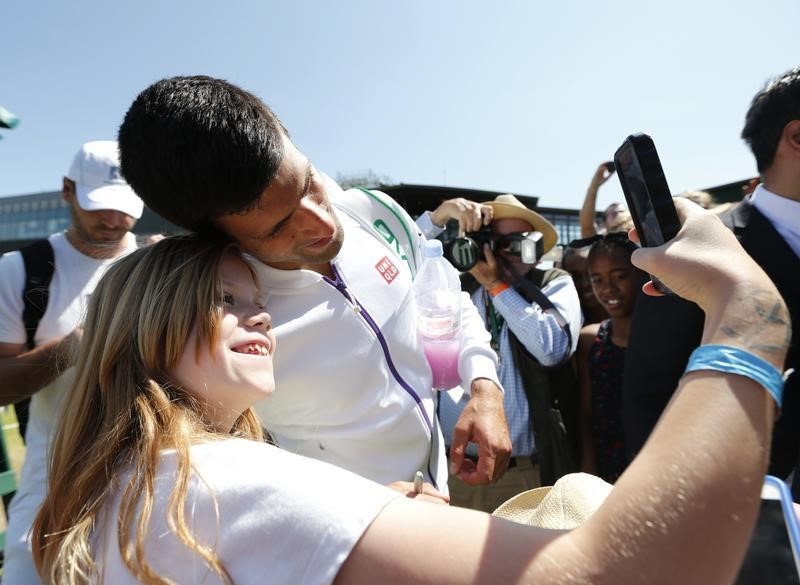By Michael Roddy
LONDON (Reuters) - Diehard Wimbledon tennis fans are used to queueing for hours, if not days, for tickets and a 24-hour strike by London's underground rail network was not going to stop them getting to the tournament on Thursday.
It seemed like business as usual at the grasscourt championship in south London, although many of the spectators arriving at the main gates had to battle delays and traffic congestion to get there.
"I don't live anywhere near this side of the world," said Yvonne Westcarr, an accountant from north London, who drove with three friends for two hours through heavy traffic and paid 30 pounds ($46) to park for the day.
She said it was worth it to see American top seed Serena Williams play Russian Maria Sharapova in the women's semi-final on Centre Court.
"It was the worst of all possible scenarios, but it's all for Serena," Westcarr said.
Gill Hughes and Liz Elder, who travel down to Wimbledon every year from Liverpool in north-west England, had picked a London hotel close to an underground 'Tube' line running direct to the tennis.
"This is the first year we've got a hotel right on a Tube line direct to Wimbledon, and of course, no tubes," Hughes said, lounging on the grass of Henman Hill while waiting for play to begin on Centre Court.
"The hotel advised us to get a bus but the buses were so full we just got a taxi down, for 32 pounds," said Hughes, who vowed to return next year despite the hassle.
The ride was also a bit longer for 19-year-old Zimbabwean Clive Nyawo, who had come out to Wimbledon from London for the first time as the guest of Ossie Barr, a retired worker for British Telecom.
Barr had figured out the best alternate route, so it only took a half hour longer than if the underground was running, but for Nyawo it was like he'd travelled to another planet.
"It's massive and people are so lovely here, the atmosphere is just amazing," said Nyawo, who plays tennis. "When you see it on television it seems so small but when you're here, wow."

The Wimbledon press office said it was difficult to gauge whether the strike had any impact on attendance since the numbers always drop off in the final four days of the championship when fewer matches are being played.